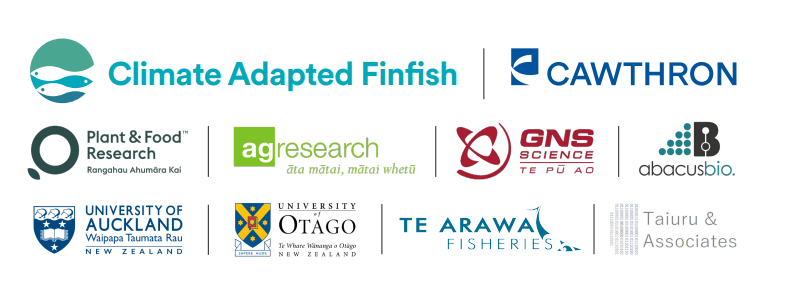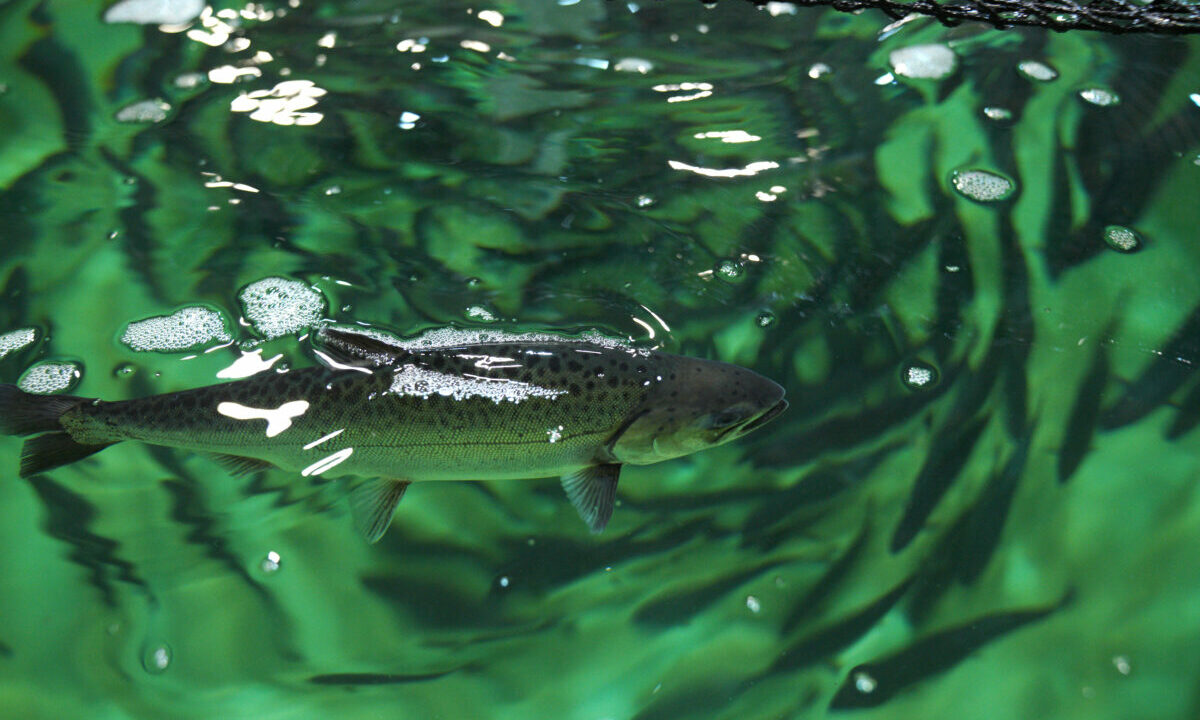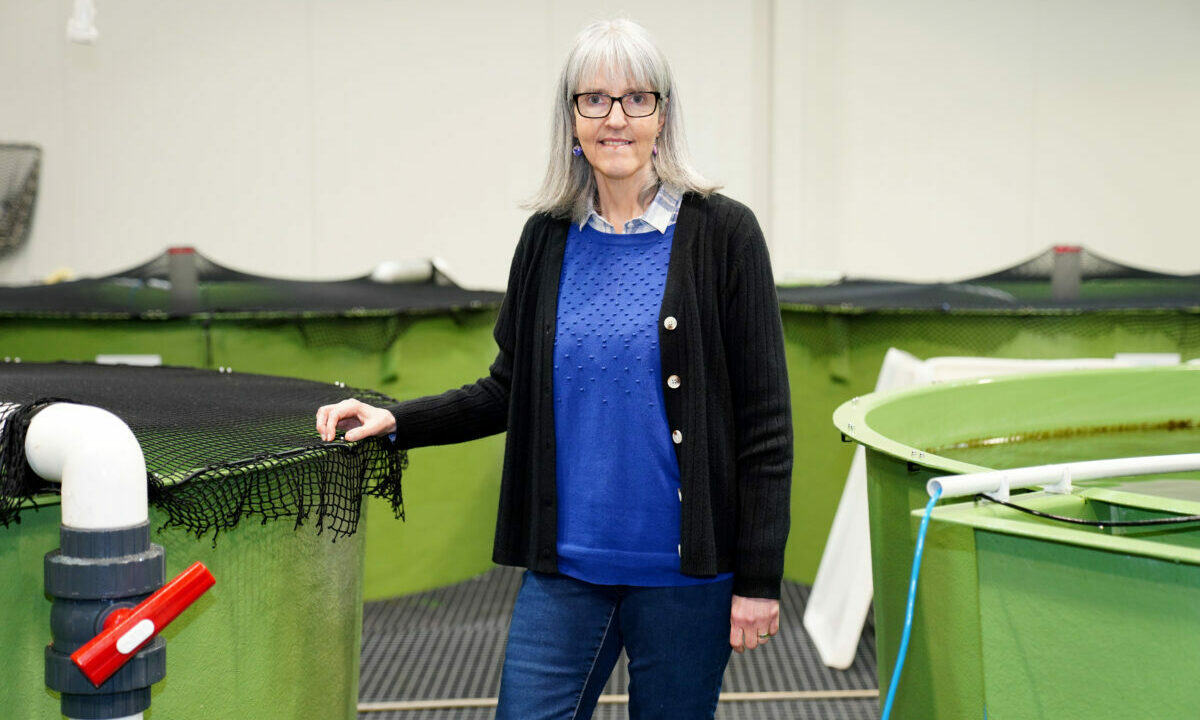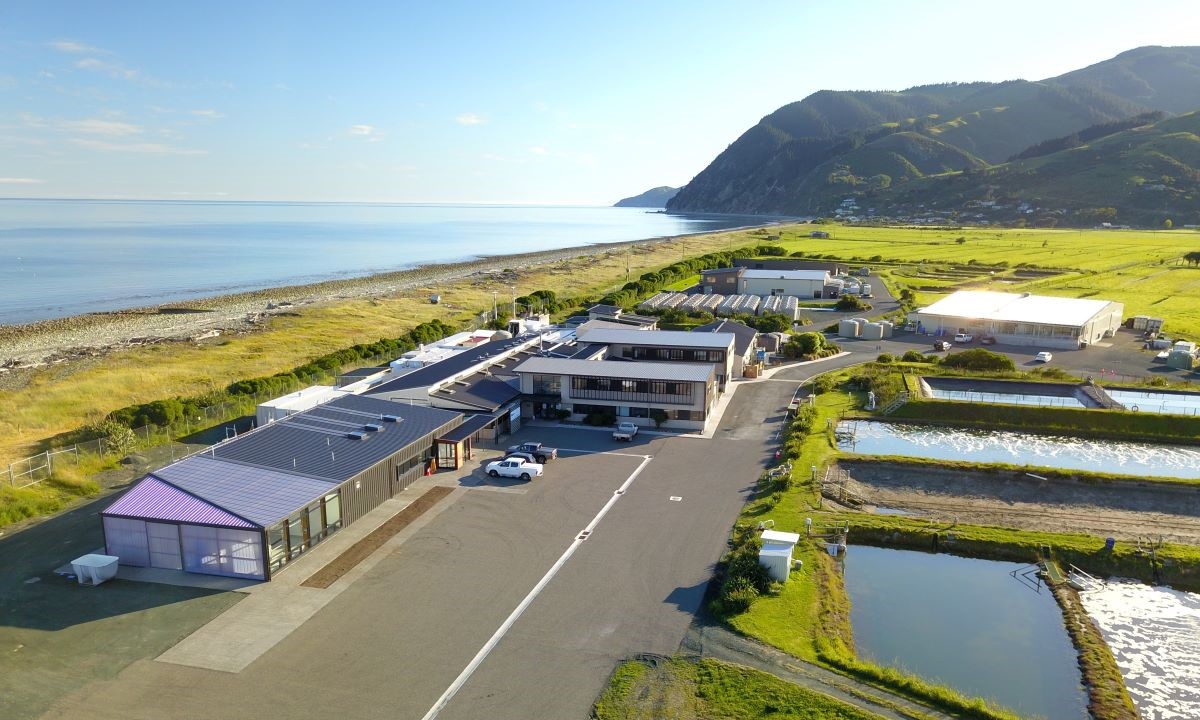
Fast Tracking Finfish Climate Change Adaptation is a five-year collaborative research programme enabled by the Ministry of Business, Innovation and Employment through the Endeavour Fund.
It will protect and add value to Aotearoa New Zealand’s aquaculture sector by enabling adaptation and growth despite the current and future impacts of climate change. Our accelerated adaptation strategies will mitigate the climate change impacts already being felt by this sector. They provide new knowledge pathways and opportunities that can be applied across a wider range of aquatic species and environments, including the open ocean, as the climate continues to change in uncertain ways.
Background
Climate change is already altering our marine environment at an unprecedented rate with major changes severely impacting farming and natural systems. Aotearoa New Zealand’s finfish aquaculture industry is at risk with increasing marine heatwaves driving significant mortalities. Despite the urgent need for climate change adaptation, responses are often reactive and farmers remain unprepared for future climate uncertainty. Our programme, Fast-Tracking Finfish Climate Adaptation, addresses this urgent need by delivering a step change with environmental resilience breeding and genomic methodologies to enable and fast-track effective adaptation to the ‘moving target’ of climate change and provide the increased resilience that finfish need to thrive in future environments. Our aim is to shift finfish aquaculture breeding objectives away from a productivity-focused paradigm and move them towards an integrated multi-trait design that puts value on genotypes that ensure future resilience to climatic and environmental challenges.
Our research will:
- Develop new Future Adaptive Breeding Strategies delivered within climate change adaptation pathways
- Define and test key production and environmental resilience phenotypes (e.g., temperature tolerance and endurance) and assess their potential for selection.
- Accurately identify superior resilience and production genotypes and provide breeding values industry can apply before the end of the programme, to improve survival, welfare and performance in multiple environments (e.g., inshore, open ocean and land-based).
- Enable co-development of solutions for immediate uptake through existing breeding programmes for salmon and tāmure/snapperas well as designing programmes for new species (e.g., haku/kingfish).
Funders and Partners
This programme was made possible by the support of the Ministry of Business, Innovation and Employment (Endeavour Fund)
Programme Partners:

News Stories, Case Studies and Publications
Climate Adapted Finfish Research Programme – 2025 Overview
Climate Adaptation Pathways Planning: Seafood Sector Workshops
Programme Oversight Group

Te Rerekohu Tuterangiwhiu
Kaiarahi Rangahau Kaimoana | Cawthron Institute
Get in touch
If you have any questions about this programme, please email Dr Jane Symonds via the link on her profile.







